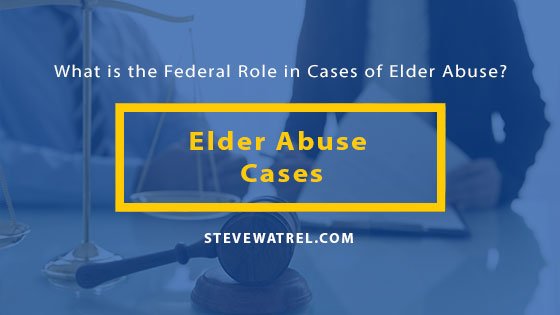Almost every day there are new reports or accusations of elder neglect, abuse, and financial exploitation from across the country. Older adults are isolated, denied the care they need, neglected, and suffering financial, sexual, and physical abuse – in many cases, this abuse is orchestrated by those they rely on to care for them.
According to a study conducted in 2011 by GAO – the U.S. Government Accountability Office – elder abuse is now widespread, and it is a problem that is growing. Even though data reporting is somewhat challenging for this area, more recent studies have shown the occurrence of these situations are actually much higher than what was initially though.
As a nation, the response to this serious problem is disjointed and the minimal investment by the federal government of $11.7 million is spread thin across two departments and eight agencies with very little coordination.
Federal Laws in Place to Prevent and Respond to Elder Abuse
There are some federal laws in place that address elder abuse and neglect. However, individual state laws are the main source of sanctions, protections, and remedies when it comes to elder abuse. In fact, there are no federal laws in place that create broad regulatory mechanisms for local or state programs to specifically provide support services for those who are a victim of elder abuse.
Until the Elder Justice Act of 2009 was passed, federal law authorized very little funding to local and state agencies to identify, prevent, or remediate cases of elder abuse. Federal criminal laws in place to address cases of elder abuse is limited, but there is legislation pending that would help to increase federal resources for responding to crimes committed against the elderly.
The Challenges Related to Addressing Cases of Elder Abuse
The gravity and breadth of elder abuse show the huge challenges of addressing this serious problem on a national level. While there are state laws and repercussions for those who abuse the elderly, their reach is often limited based on the laws in place, which are also somewhat limited.
If you believe that your elder loved one is a victim of abuse or neglect, you must report it. It’s also necessary to remove them from the situation or environment where the abuse is taking place. Once reported, hire an attorney, as you need to gather evidence and begin building a case to ensure that the person responsible for these actions is held responsible. An attorney will understand what laws are in place to help ensure justice is served.
Unfortunately, even today, the federal impact of laws regarding elder abuse are limited. While there are still laws on a state level, it’s up to you in many cases to ensure an abuser is held responsible. While this may seem challenging, with the help of an attorney who has experience working on these cases, you can build a case, protect your elderly loved one, and make sure the abuser is brought to justice.




